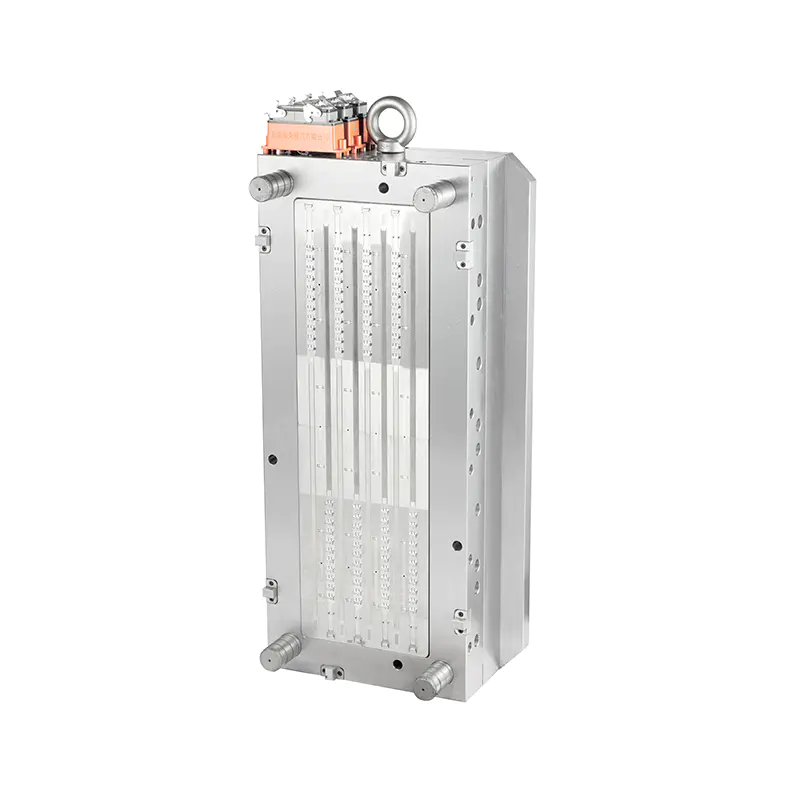 2025.04.04
2025.04.04
 News
News
Nylon cable ties are one of the widely used fastening solutions in various industries. From electrical installations to automotive assembly, these versatile components play a crucial role in organizing and securing cables, wires, and other materials. At the heart of the production of nylon cable ties lies the Nylon Cable Tie Mold, an essential tool in manufacturing. This mold is responsible for shaping and producing cable ties in large volumes, ensuring uniformity, quality, and efficiency.

1. Precision in Manufacturing
One of the primary features of the Nylon Cable Tie Mold is its precision in producing consistent, high-quality products. Injection molding, the process used to manufacture nylon cable ties, relies heavily on the mold's design and accuracy. The Nylon Cable Tie Mold is created with tight tolerances to ensure that every tie produced has the same dimensions and performance characteristics.
The precision of the Nylon Cable Tie Mold is crucial for the final product's functionality. Cable ties must fit snugly around cables and provide reliable fastening without breaking or losing their grip. Variations in size or shape could lead to good performance, but the high precision of the mold ensures that every tie meets the required standards, providing a secure hold every time.
2. Material Compatibility
The Nylon Cable Tie Mold is specifically designed to work with nylon, a material known for its strength, durability, and flexibility. Nylon is widely used in cable tie manufacturing because it can withstand a wide range of environmental conditions, including temperature fluctuations and exposure to UV light. The mold is built to ensure that the nylon material is properly injected and cooled, allowing for the desired mechanical properties to be achieved in the finished product.
The material compatibility of the Nylon Cable Tie Mold extends to various types of nylon as well, including reinforced nylon and UV-resistant nylon. Manufacturers can produce cable ties with different properties to suit specific applications, such as outdoor use or high-stress environments. The mold's versatility in working with different nylon formulations makes it a key component in producing a range of cable ties that meet the diverse needs of industries worldwide.
3. Efficiency in High-Volume Production
The Nylon Cable Tie Mold is optimized for high-volume production, making it ideal for the mass manufacturing of cable ties. Once the mold is designed and set up, it can produce hundreds or even thousands of cable ties in a short amount of time. This efficiency is a result of the automated nature of the injection molding process, where the nylon material is injected into the mold cavity under high pressure, quickly solidifying into the desired shape.
In high-demand industries, such as electronics, automotive, and construction, the ability to produce large quantities of nylon cable ties quickly is essential. The Nylon Cable Tie Mold plays a vital role in this by allowing manufacturers to maintain a steady and reliable production output without sacrificing quality or consistency.
4. Durability and Longevity
Durability is another important feature of the Nylon Cable Tie Mold. The mold itself is built to last, as it is subjected to constant pressure, heat, and wear during the injection molding process. High-quality molds are made from materials such as hardened steel, which can withstand the stresses of repeated use. This durability ensures that manufacturers can produce cable ties consistently over long periods without needing to replace the mold frequently.
A long-lasting Nylon Cable Tie Mold helps manufacturers reduce downtime and maintenance costs, contributing to a more cost-effective production process. Additionally, molds that retain their integrity over time produce better-quality cable ties, which further enhances the overall manufacturing process.
Recommended Products
